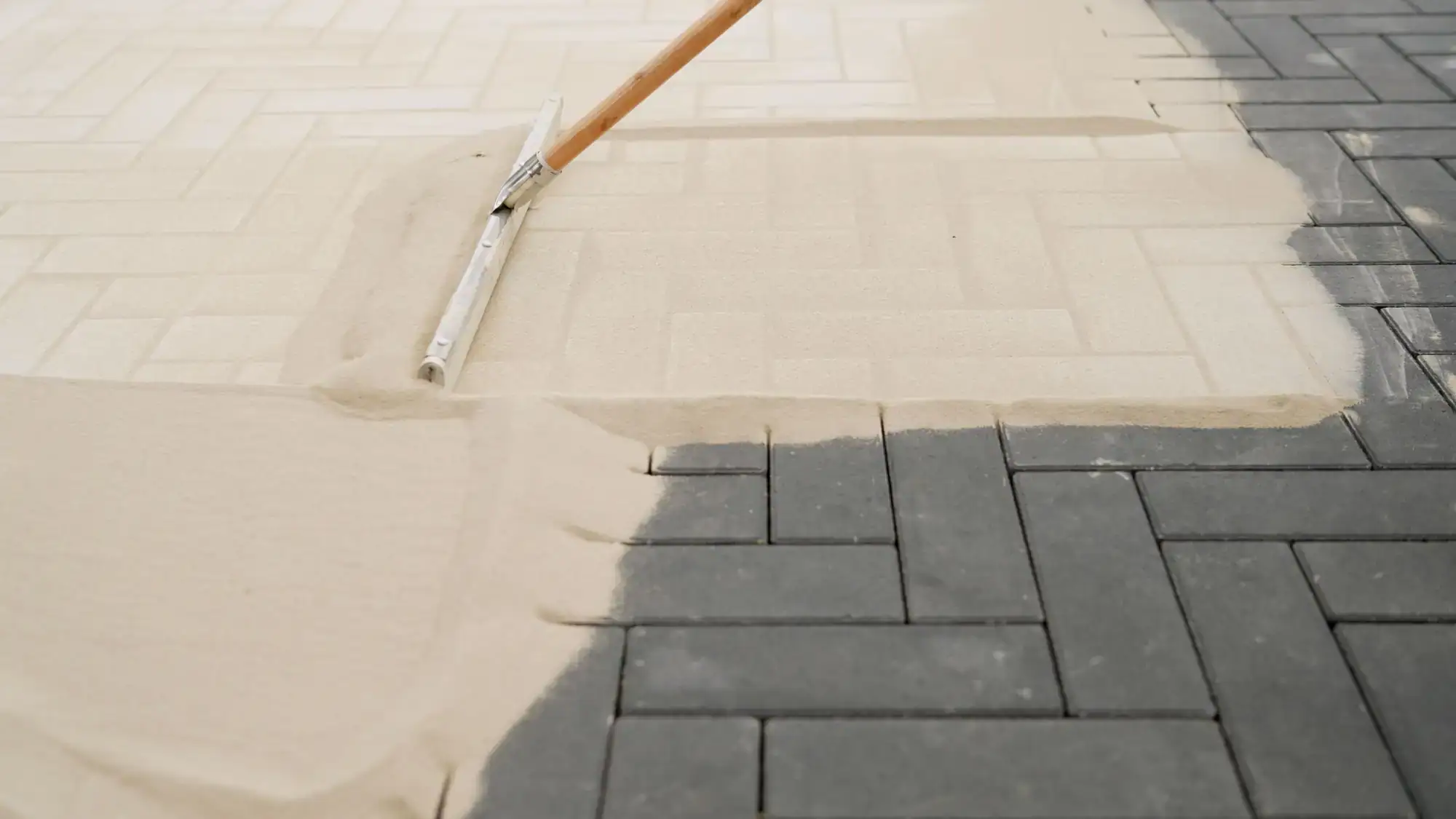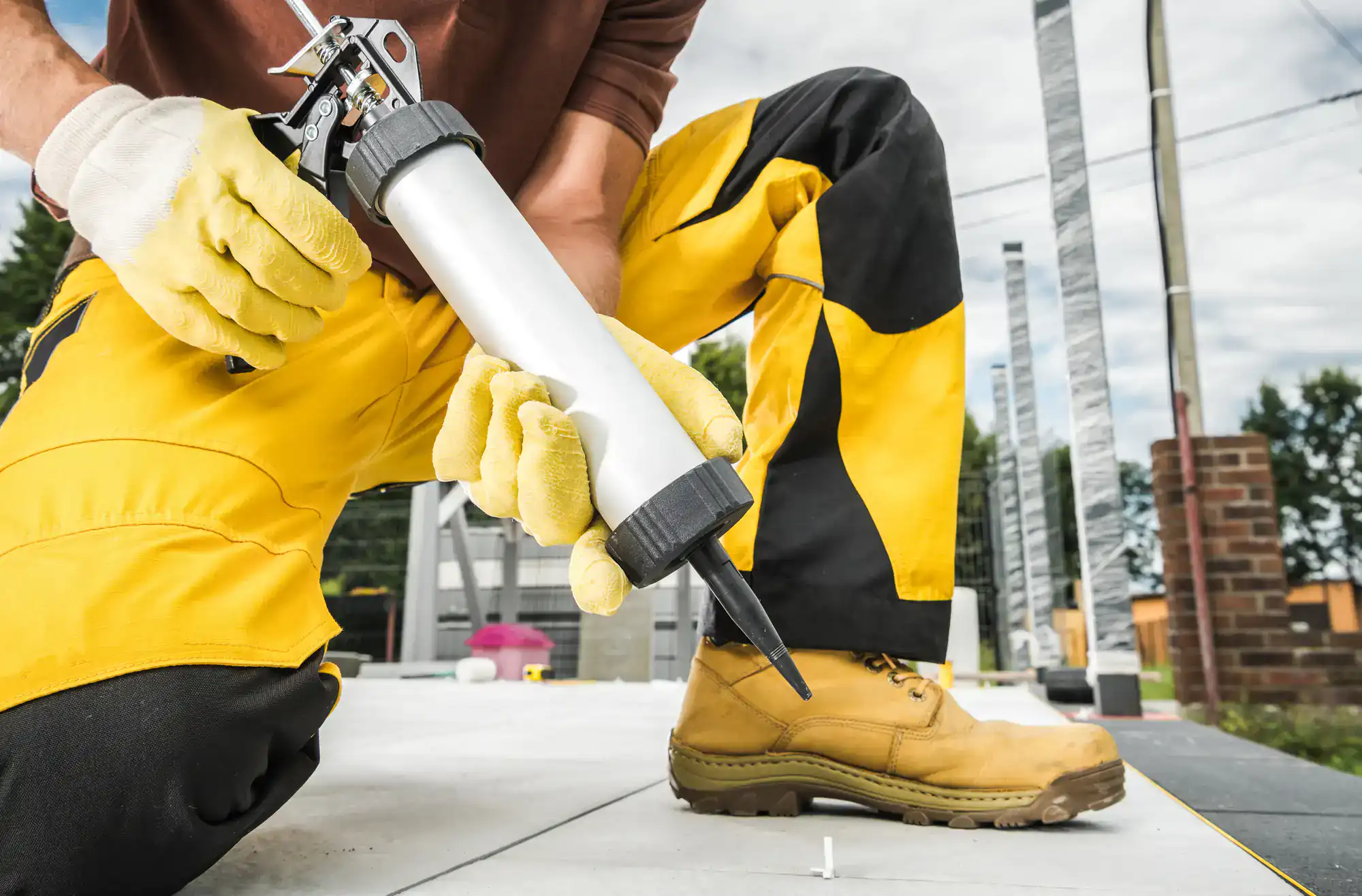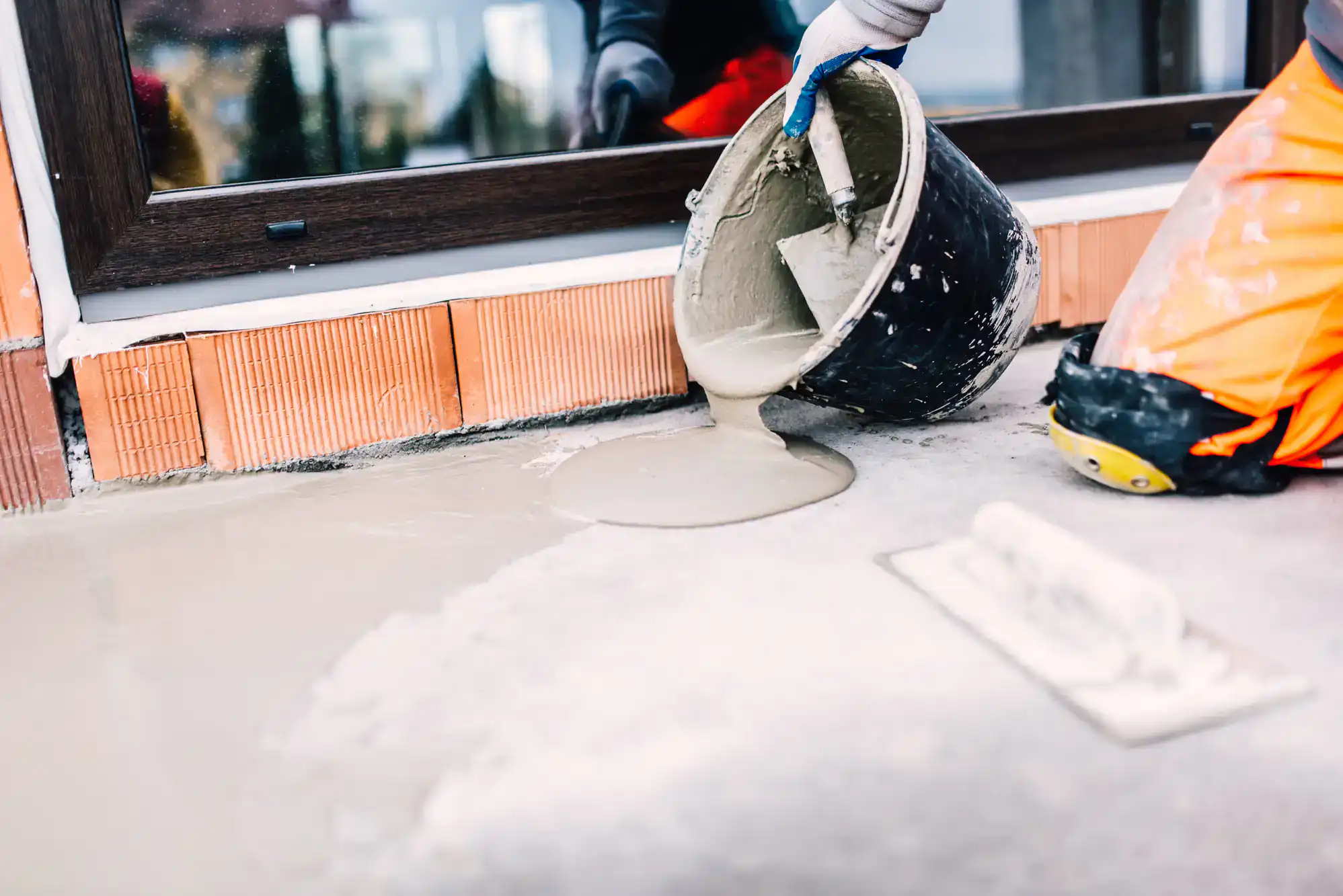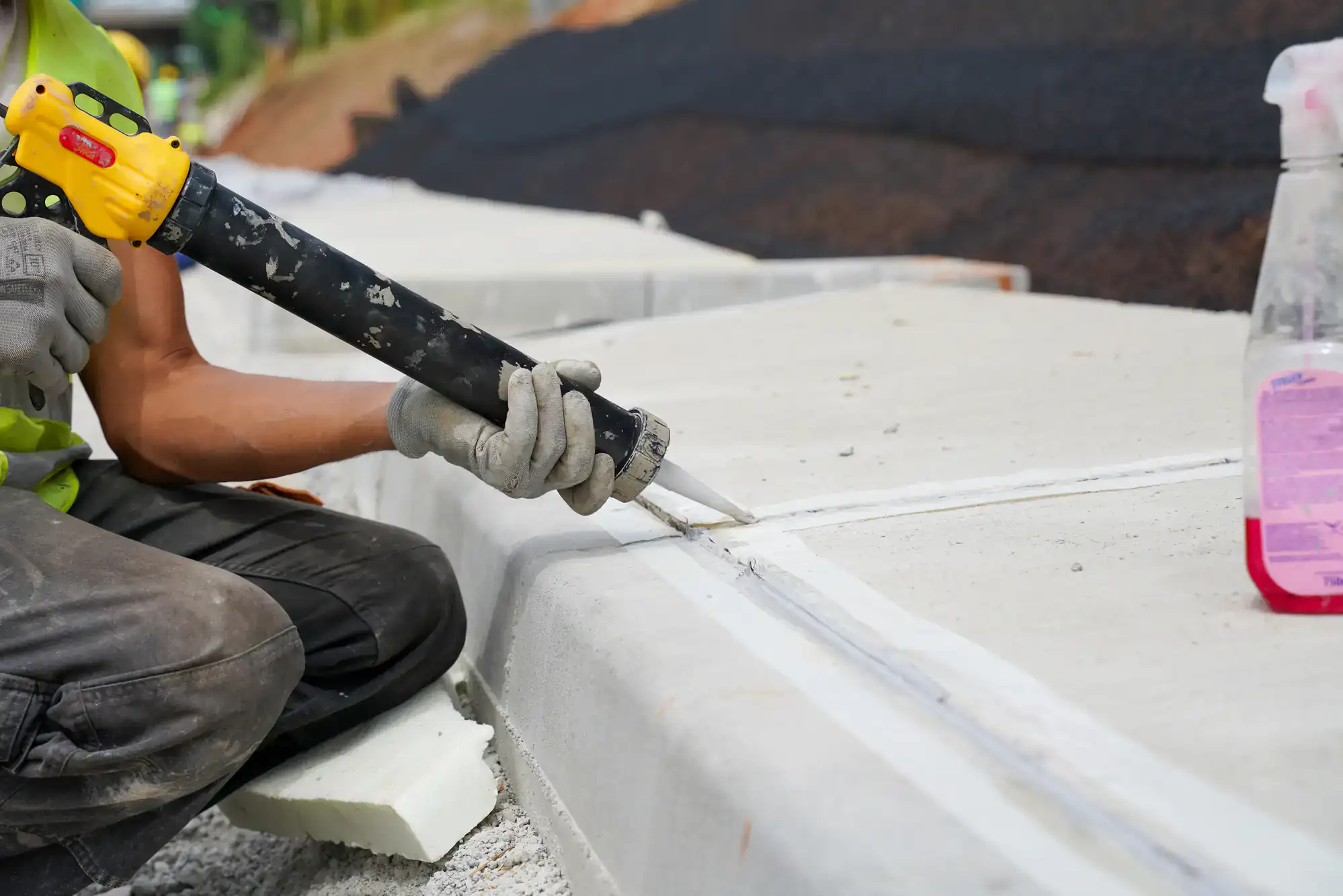Concrete Sealing in Wellington, FL
Concrete That Actually Stays Protected

Hear from Our Customers

Professional Concrete Sealing Wellington
You get concrete that resists moisture penetration, the leading cause of flooring failure in Florida. No more worrying about alkalinity breaking down your investment or humidity creeping through your slab.
Your sealed concrete handles oil spills, chemical exposure, and daily wear without showing it. The surface stays intact, looks professional, and saves you from costly repairs down the road.
Most importantly, you get years of reliable performance with minimal maintenance. Just regular cleaning keeps your concrete looking and performing like new.
Wellington Concrete Sealing Experts
SPF Industrial has been protecting South Florida concrete for years, and we understand exactly what Wellington properties face. High humidity, seasonal storms, and constant temperature changes that other regions don’t deal with.
We’ve sealed concrete in everything from Wellington warehouses to residential driveways. Each project teaches us more about what works in this specific climate and what doesn’t.
When you work with contractors who actually understand local conditions, you get solutions that last. Not generic approaches that might work somewhere else.

Concrete Sealing Process Wellington
First, we evaluate your concrete’s current condition and moisture levels. Florida’s humidity means we can’t skip this step if you want lasting results.
Next comes surface preparation. We clean, repair any existing damage, and ensure the concrete is ready to bond properly with the sealing system. Rushed prep work leads to failed seals.
Then we apply the appropriate sealing system for your specific needs. Different concrete faces different challenges, so we match the solution to your situation.
Finally, we test the seal and walk you through proper maintenance. You’ll know exactly what to expect and how to keep your concrete protected for years.

Ready to get started?
Wellington Commercial Concrete Sealing
You get complete moisture vapor control, critical for Wellington’s humid environment. We use proven systems that create a barrier against the moisture that destroys unsealed concrete.
Your sealing includes protection against oil, chemicals, and daily wear. Whether it’s a warehouse floor or retail space, the sealed surface handles what you throw at it.
We also include proper joint sealing and crack repair where needed. Wellington’s soil conditions and weather patterns create specific stress points that we address during the sealing process.
Plus, you get guidance on maintenance schedules specific to your concrete’s use and environment. Not generic advice, but recommendations based on your actual situation.

How long does concrete sealing last in Wellington’s humid climate?
Properly applied concrete sealing typically lasts 5-7 years in Wellington’s environment, depending on traffic and use. Florida’s humidity actually makes sealing more important, not less effective.
The key is using moisture-resistant systems designed for high-humidity environments. Generic sealers often fail within 2-3 years here because they’re not formulated for our specific conditions.
We use proven systems that bond tightly to concrete even under adverse conditions. This prevents the moisture and alkalinity issues that cause most sealing failures in South Florida.
What happens if you don’t seal concrete in Florida?
Unsealed concrete in Florida absorbs moisture constantly, leading to deterioration from the inside out. You’ll see surface staining first, then cracking and spalling as the moisture causes internal damage.
The real problem is what you can’t see. Moisture penetration creates alkalinity issues that destroy any flooring systems you try to install later. This means costly removal and replacement of failed floors.
Florida’s freeze-thaw cycles, while mild, still cause expansion and contraction that accelerates damage in unsealed concrete. What starts as minor surface issues becomes structural problems requiring major repairs.
Can you seal concrete that already has stains or damage?
Yes, but the existing damage needs proper repair first. Sealing over stains or cracks just locks in the problems and often leads to sealing failure within months.
We start by evaluating what caused the original damage. If it’s moisture-related, we address the source before sealing. If it’s surface damage from spills or wear, we clean and repair those areas.
The goal is creating a sound surface that accepts the sealing system properly. Rushed sealing over damaged concrete wastes your money and leaves you with the same problems plus a failed seal.
How do you prepare concrete for sealing in Wellington?
Preparation starts with moisture testing to understand what we’re working with. Wellington’s soil conditions and humidity levels affect how concrete behaves, so we need baseline measurements.
Next comes thorough cleaning and surface profiling. We remove any existing sealers, stains, or contaminants that would prevent proper bonding. This often includes diamond grinding to create the right surface texture.
Finally, we repair any cracks or damage and ensure the concrete is completely dry before sealing. Rushing this process leads to sealing failures, especially in high-humidity environments like Wellington.
What’s the difference between concrete sealing and concrete coating?
Concrete sealing penetrates into the concrete to create protection from within, while coatings sit on top of the surface. Sealers are typically thinner and designed primarily for protection rather than appearance.
Coatings like epoxy create a thicker, more durable surface that can handle heavier traffic and provide decorative options. They’re better for warehouses, garages, and commercial spaces that need both protection and performance.
The choice depends on your needs. Basic moisture protection calls for sealing, while high-traffic areas or spaces requiring chemical resistance usually need coating systems. We evaluate your specific situation to recommend the right approach.
How soon can you use concrete after sealing?
Most concrete sealers allow light foot traffic within 4-6 hours, but full curing takes 24-48 hours depending on humidity and temperature. Wellington’s climate can extend these times slightly.
Vehicle traffic typically requires 24-48 hours minimum, and we always test a small area first to ensure proper curing. Rushing back into service before full cure can damage the sealing system.
We provide specific timelines based on the sealing system used, your concrete’s condition, and current weather conditions. Following these guidelines ensures you get the full protection and lifespan from your concrete sealing investment.
Other Services we provide in Wellington





